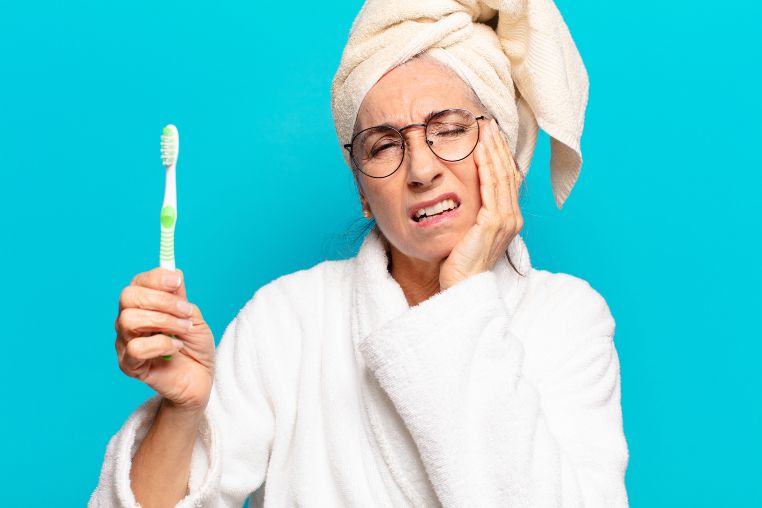Practicing good oral hygiene means brushing your teeth twice a day, and flossing regularly. So if you are brushing regularly and taking good care of your teeth, you've probably wondered if there is such thing as brushing your teeth too much. Dentists say yes, overbrushing can cause damage to your teeth and gums. So if you believe that you might be overdoing it, you will find all the dangers of overbrushing in this article.
Maintaining good oral practices is essential for keeping your teeth healthy, however, if you aren’t brushing correctly you can damage your teeth and gums. So the point is, it’s not so much of a problem with how frequently you brush your teeth, but if you are doing it incorrectly. Brushing your teeth too aggressively can cause dental problems like gum recession, dental abrasion, and tooth sensitivity.
If you are brushing too hard over long periods, it can cause your gums to recede. That means that the gum tissue starts pulling away from the teeth, leaving the roots exposed. The cementum that covers the roots is softer and is more vulnerable to being damaged. If the cementum gets worn out or damaged it can lead to pain and sensitivity and increases the chance of decay and infections.
Dental abrasion refers to the wear of tooth enamel and dentin, which can be caused by brushing and flossing too vigorously, or by chewing hard foods. Also brushing with hard-bristled toothbrushes and toothpaste with abrasive particles can accelerate the wear. Abrasion manifests itself as shiny yellow or brown spots near the gum line. If left untreated for too long, abrasion can cause tooth decay, gum recession, and even tooth loss.
Tooth sensitivity is a common occurrence when you use your toothbrush too hard. The tooth enamel gets worn out due to abrasion, exposing the underlying dentin. Dentin contains small tubules that lead to nerve endings in your teeth, and when exposed can cause pain and discomfort.
If left unchecked, the damages done by over-brushing, like dental abrasion and gum recession, can lead to serious issues like tooth decay and tooth loss. If that is the case you should consult your dentist on what treatment is needed to address the issue. Fluoride varnish can be used as a treatment to strengthen the teeth' surface, as well as fill the abraded area or put a veneer over the exposed surface of the tooth. If your gums are affected by over-brushing and have started to recede, if the condition is too severe, the gums might never recover. In this case, you might need gum grafting surgery to replace the missing tissue.
Even though over-brushing can cause serious problems, they can quite easily be prevented, by adopting new routines and following some simple rules when brushing your teeth. Here is a list of some practices that will prevent unnecessary complications.

Unlike a brush with hard bristles, it is softer on the teeth, and you won't have to fear wearing down enamel and damaging your gums if you brush a little harder. If you are using an electric toothbrush, follow these rules to prevent damage to your teeth.
Make sure that your toothpaste isn't abrasive, and switch to fluoride toothpaste which strengthens the tooth enamel.
Using a proper technique is probably the most important thing to prevent damage to your teeth. When brushing, brush downwards from the gums, since doing the opposite can cause food to get stuck beneath the gums, and cause your gums to recede.
There are other ways to wear down your teeth other than over-brushing. Biting your fingernails, opening bottle caps with your teeth, or holding nails in your teeth can also cause abrasion or you could end up with broken teeth. Getting rid of those habits will eliminate the unnecessary risk of damaging your teeth.
Overbrushing is a more common problem than you might think. Although the damages may seem great, they can be corrected. If you notice your teeth are starting to show signs of wear, make sure to contact your dentist as soon as possible to prevent further complications. Also following the tips that are mentioned above, will greatly reduce and even eliminate the risk of overbrushing completely. So lighten up, and brush smart not hard.

